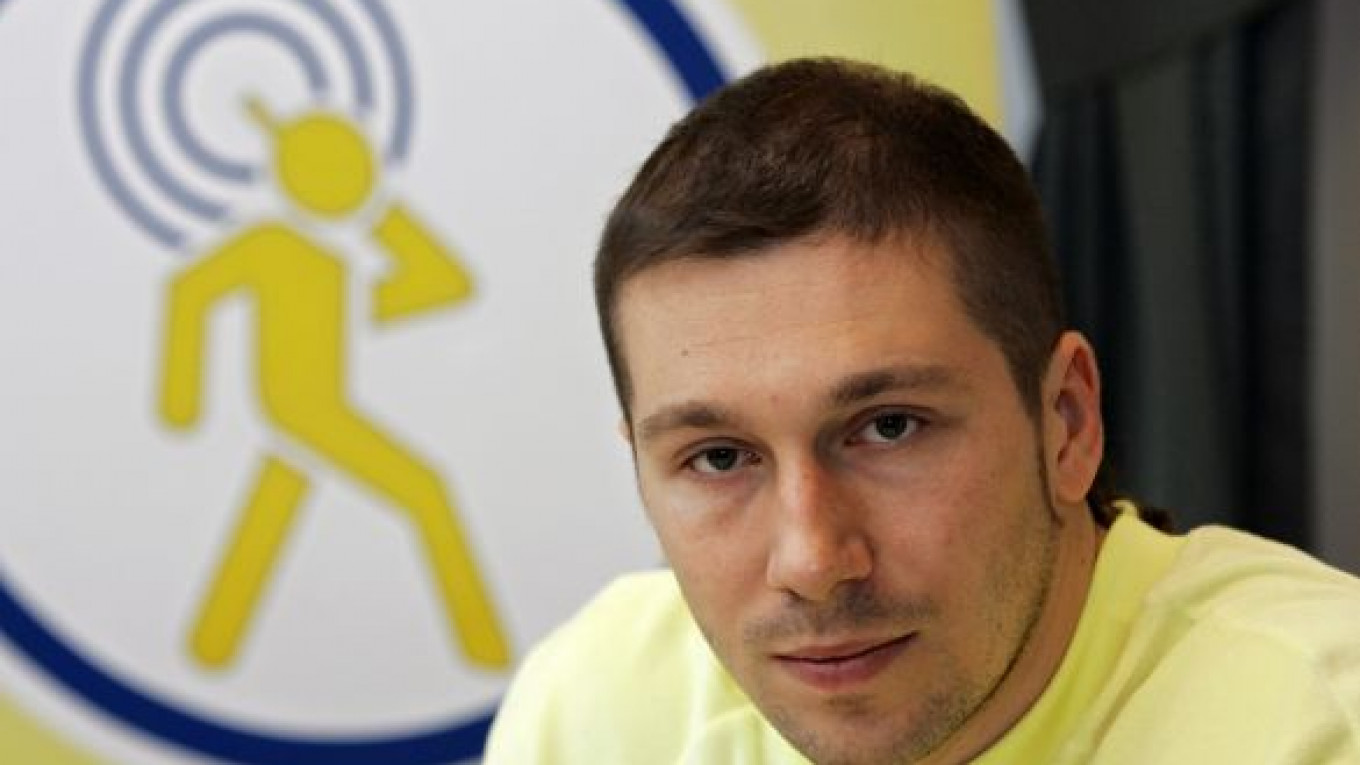The high-profile extradition case of former Yevroset owner Yevgeny Chichvarkin has taken a surprise pause amid an investigation into the mysterious death of the businessman’s mother, who was found covered in blood in her Moscow apartment.
On Tuesday, Russian prosecutors announced a new probe into the April 3 death of 60-year-old Lyudmila Chichvarkina, the businessman’s lawyer in Moscow said. Chichvarkina was covered in blood and bruised when she was found, but paramedics ruled that she died of a heart attack.
The announcement came a day after a London court postponed a hearing into the extradition of Chichvarkin, who insists he should not be sent back to Russia because someone has murdered his mother and his own life is in danger.
The next hearing in the extradition proceedings will be Sept. 13.
“There was clear evidence of an attempted murder,” lawyer Vladimir Zherebenkov told The Associated Press on Tuesday, saying her body was bruised all over as if she were severely beaten.
Her clothes and shoes were drenched in blood from head to toe, he said. It would have been a natural death only if “she had struck herself in the head twice and fell to the ground twenty times.”
Chichvarkin, 35, also insists that his mother was murdered, citing his father’s visit to the crime scene and evidence in police files. He also calls Russia’s extradition request politically motivated because he has spoken out against corruption in the Interior Ministry.
The mysterious death might prove to be a major factor in the London court’s decision whether Britain should extradite Chichvarkin back to Russia to face kidnapping charges. His lawyer says that if Chichvarkin’s suspicions are proven, Russia’s case for his extradition would collapse.
Officials tried to cover up the case, Zherebenkov said, because “if evidence that she was murdered was made public, extradition would be dismissed right away.”
A spokeswoman for Moscow prosecutors was not available to comment on the case Tuesday.
But Russian authorities appeared to have made a sharp turnaround since April, when the Investigative Committee, the country’s chief investigative body, said it would not conduct a probe because there were no signs of a violent death.
Investigators first claimed that Chichvarkina had bruised herself when she bumped her head against the edge of the kitchen table, but Moscow chief investigator Anatoly Bagmet admitted in June that she had been beaten up. He did not order a probe at the time, however, saying the beating could not have caused the death.
It was not clear why a new probe was ordered, but Britain is not likely to extradite a suspect while there are questions about a possible violent death in his immediate family.
Chichvarkin, one of Russia’s most successful entrepreneurs during the early 2000s, did not make his fortune in commodities like most Russian millionaires. He started in 1997 at age 22 selling mobile phones in a firm that later became the country’s largest mobile phone retailer.
Known for his eccentric style and colorful language, Chichvarkin made Yevroset a household name thanks to its aggressive and often risque marketing. But he was also well-known for outspoken statements against corruption in the police, which he said prompted the charges against him.
Yevroset came under attack in the fall of 2008, when one of his deputies was arrested and charged with kidnapping and extortion.
Prosecutors said a Yevroset vice president and his subordinates kidnapped a shipping agent whom they suspected of stealing a large number of handsets. They allegedly kept him in an apartment in a Moscow suburb, demanding that he pay them 10 million rubles ($334,000) — the alleged value of the handsets that he had stolen.
Chichvarkin fled Russia in December 2008. A month later, a Moscow court charged him in absentia with complicity in the kidnapping and put out an international arrest warrant.
Chichvarkin says the charges are a complete fabrication from a police department that was seeking revenge for his efforts to expose corruption.
The Yevroset kidnapping trial is due to start later this month in Moscow, and the London court will watch it closely to see whether the charges have any grounds, Chichvarkin’s lawyer said.
“There is a lot of evidence that prosecutors are trying to hide,” Zherebenkov said. “Economic and political motives behind this case are evident.”
A Message from The Moscow Times:
Dear readers,
We are facing unprecedented challenges. Russia's Prosecutor General's Office has designated The Moscow Times as an "undesirable" organization, criminalizing our work and putting our staff at risk of prosecution. This follows our earlier unjust labeling as a "foreign agent."
These actions are direct attempts to silence independent journalism in Russia. The authorities claim our work "discredits the decisions of the Russian leadership." We see things differently: we strive to provide accurate, unbiased reporting on Russia.
We, the journalists of The Moscow Times, refuse to be silenced. But to continue our work, we need your help.
Your support, no matter how small, makes a world of difference. If you can, please support us monthly starting from just $2. It's quick to set up, and every contribution makes a significant impact.
By supporting The Moscow Times, you're defending open, independent journalism in the face of repression. Thank you for standing with us.
Remind me later.






